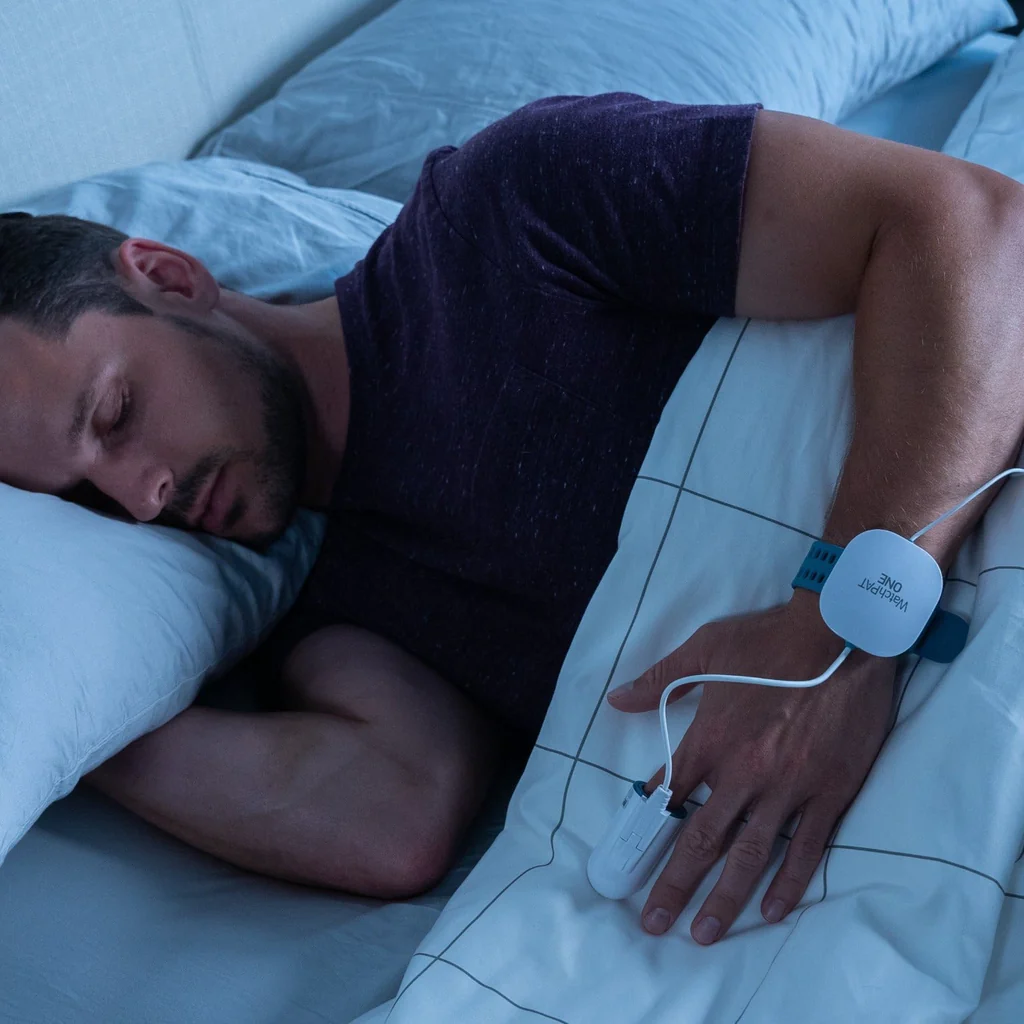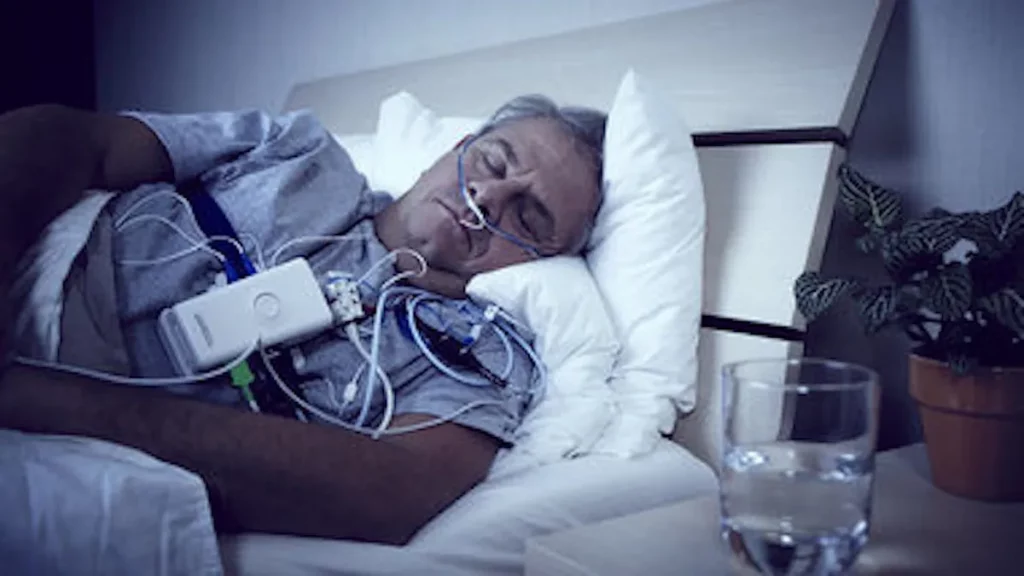In today’s fast-paced world, getting a good night’s sleep is more important than ever. Sleep plays a vital role in our overall health and well-being, and when we don’t get enough quality sleep, it can have a significant impact on our daily lives. Sleep disorders are becoming increasingly common, with millions of people around the world struggling to get the rest they need. Luckily, advancements in technology have made it easier than ever to have a sleep study done from the comfort of your own home.
Understanding the Importance of Sleep Studies
A sleep study, also known as a polysomnogram, is a non-invasive test that helps to evaluate your sleep patterns and diagnose any potential sleep disorders. It involves monitoring various physiological parameters while you sleep, such as brain activity, eye movement, heart rate, and oxygen levels. By analyzing this data, sleep specialists can gain valuable insights into your sleep quality and identify any underlying issues that may be causing your sleep problems.
With recent advancements in sleep technology, sleep study at home near me are becoming an increasingly popular alternative to in-lab studies. Home sleep studies allow you to undergo a sleep assessment from the comfort of your own home, providing a more convenient and accessible option for those in need of a diagnosis.
The Role of Sleep in Overall Health
Sleep is not just a time for our bodies to rest and recharge; it plays a crucial role in our overall health and well-being. During sleep, our bodies repair and regenerate tissues, while our brains consolidate memories and process information. Adequate sleep is essential for maintaining a strong immune system, managing stress levels, and regulating our mood and emotions. Lack of quality sleep has been linked to a wide range of health problems, including obesity, diabetes, cardiovascular disease, and even mental health issues.

Identifying Sleep Disorders
Many people who struggle with sleep problems may be suffering from an undiagnosed sleep disorder. Some common sleep disorders include insomnia, sleep apnea, restless leg syndrome, and narcolepsy. These conditions can have a significant impact on your sleep quality and overall well-being. By undergoing a sleep study, you can get a definitive diagnosis and start working towards finding the right treatment for your specific needs.
Let’s take a closer look at one of the most common sleep disorders: sleep apnea. Sleep apnea is a condition characterized by pauses in breathing or shallow breaths during sleep. These pauses can last for a few seconds to a few minutes and can occur multiple times throughout the night. Sleep apnea can lead to fragmented sleep, daytime sleepiness, and an increased risk of other health problems.
There are three types of sleep apnea: obstructive sleep apnea, central sleep apnea, and complex sleep apnea syndrome. Obstructive sleep apnea is the most common type and occurs when the muscles in the back of the throat fail to keep the airway open, despite the effort to breathe. Central sleep apnea, on the other hand, is caused by a failure of the brain to transmit the proper signals to the muscles that control breathing. Complex sleep apnea syndrome is a combination of both obstructive and central sleep apnea. Learn more about failure of the brain visit at https://bioethics.yale.edu/sites/default/files/files/Brain%20Death%20FAQ%20-%20final%20posted.pdf.
It is important to note that sleep apnea can have serious consequences if left untreated. It has been associated with an increased risk of high blood pressure, heart disease, stroke, and even sudden death. Therefore, if you suspect that you may have sleep apnea or any other sleep disorder, it is crucial to undergo a sleep study to receive an accurate diagnosis and appropriate treatment.
The Traditional Approach to Sleep Studies
Traditionally, sleep studies were done in a hospital or sleep center setting. Patients would spend a night in a sleep lab, where numerous sensors and electrodes would be attached to their bodies to monitor their sleep patterns. While these in-lab sleep studies have been the gold standard for diagnosing sleep disorders for many years, they do come with some drawbacks.
In-Lab Sleep Studies: What to Expect
If you are scheduled for an in-lab sleep study, you can expect to spend a night away from home in a sleep center. A trained technician will attach various sensors to your body, including ones to monitor brain waves, eye movements, and muscle activity. These sensors are painless and completely safe. You will be asked to sleep in a specialized bed while the equipment records your sleep data throughout the night. In the morning, the data will be analyzed by a sleep specialist to determine if you have any sleep disorders. Learn more about Sleep Study Clinic Near Me: Locating Convenient Sleep Study Clinics visit at https://durarealidad.com/sleep-study-clinic-near-me-locating-convenient-sleep-study-clinics/
Potential Challenges with Traditional Sleep Studies
While in-lab sleep studies have proven to be effective in diagnosing sleep disorders, they are not without limitations. Many people find it challenging to sleep in unfamiliar surroundings, which can affect the accuracy of the results. Additionally, scheduling an in-lab sleep study can be inconvenient and time-consuming. The demand for sleep studies is high, and waiting times can be long, causing further delays in receiving the necessary diagnosis and treatment.
However, advancements in technology have opened up new possibilities for sleep studies. One such innovation is the development of home sleep testing kits. These kits allow individuals to conduct sleep studies in the comfort of their own homes, eliminating the need for overnight stays in sleep centers.
Home sleep testing kits typically consist of a portable device that monitors key sleep parameters, such as breathing patterns, oxygen levels, and heart rate. The user simply attaches the sensors themselves, following the provided instructions, and sleeps in their own bed. The next morning, they return the device to the sleep center, where the data is analyzed by professionals. Learn more about oxygen levels click here.
While home sleep testing kits offer convenience and comfort, they may not be suitable for everyone. Certain sleep disorders, such as sleep apnea, require more comprehensive monitoring and evaluation, which can only be achieved through in-lab sleep studies. Additionally, the accuracy of home sleep testing kits may vary depending on the user’s ability to properly apply the sensors and follow the instructions.
Ultimately, the choice between in-lab sleep studies and home sleep testing kits depends on the individual’s specific needs and the recommendation of their healthcare provider. Both approaches have their advantages and limitations, and it is important to weigh these factors when considering a sleep study for the diagnosis and treatment of sleep disorders.

The Rise of Home Sleep Studies
As the demand for home sleep studies continues to rise, companies are developing innovative monitoring devices that are user-friendly and technologically advanced. These devices are designed to be comfortable to wear during sleep, ensuring minimal disruption to your normal sleep routine. Some devices even come with additional features such as sleep tracking and analysis tools, giving you a comprehensive overview of your sleep quality.
How Home Sleep Studies Work
A home sleep study typically involves using a portable monitoring device that you can easily set up and use in your own bedroom. The monitoring device is equipped with sensors that track your sleep patterns, breathing, and oxygen levels, providing valuable data to be analyzed by a sleep specialist. The setup process is simple, and detailed instructions are provided to guide you through each step.
Furthermore, home sleep studies offer the flexibility of choosing the night for assessment based on your schedule and comfort. This flexibility allows for a more natural sleep pattern to be captured, potentially leading to more accurate results. The data collected during the study is securely transmitted to healthcare professionals for analysis, ensuring that you receive timely feedback and recommendations for improving your sleep quality.
Benefits of Conducting Sleep Studies at Home
One of the most significant advantages of home sleep studies is the convenience they offer. Instead of spending a night away from home, you can sleep in your familiar environment, which can lead to more accurate results. Home sleep studies also eliminate the need for scheduling and waiting times, as you can often have the device delivered to your home within a few days. Additionally, home sleep studies tend to be more cost-effective compared to in-lab studies, making them a more affordable option for many individuals.
Moreover, conducting a sleep study at home allows for a more comprehensive evaluation of your overall sleep habits and environment. By being in your own bedroom, factors such as noise levels, room temperature, and comfort of your mattress and pillows can be taken into account during the analysis. This holistic approach to sleep assessment can provide valuable insights into potential factors affecting your sleep quality, leading to personalized recommendations for improvement.
Finding a Home Sleep Study Near You
If you are considering a home sleep study, there are a few factors to consider when choosing a provider. Look for a reputable company that offers reliable equipment and comprehensive analysis of your sleep data. It’s also essential to ensure that the provider has qualified sleep specialists who can accurately interpret your results and provide appropriate recommendations for treatment.
Factors to Consider When Choosing a Provider
When selecting a home sleep study provider, consider factors such as the cost of the study, the quality of the equipment provided, the ease of setup and use, and the level of support offered throughout the process. Reading customer reviews and seeking recommendations from healthcare professionals can also help you make an informed decision.
Preparing for Your Home Sleep Study
Before beginning your home sleep study, it’s essential to prepare your bedroom to ensure optimal conditions for monitoring. Follow any instructions provided by the sleep study provider regarding cleaning the area, removing electronics, and avoiding caffeine or certain medications before bedtime. By creating a sleep-friendly environment, you can increase the chances of obtaining accurate and reliable sleep data.
Interpreting Your Sleep Study Results
Once your home sleep study is complete, a sleep specialist will analyze the data and provide you with a detailed report of the findings. It’s important to understand what your sleep study results mean and how they relate to your overall sleep health.
What Your Sleep Study Results Mean
Your sleep study results will provide valuable insights into your sleep patterns, breathing, and oxygen levels. The sleep specialist will look for any abnormalities or indications of sleep disorders. If a sleep disorder is identified, your results will help guide your treatment plan, which may include lifestyle changes, medication, or the use of a sleep apnea machine, among other options. Understanding your results is key to taking the necessary steps towards improving your sleep quality and overall well-being.
Next Steps After Your Sleep Study
After receiving your sleep study results, it’s essential to follow up with a sleep specialist to discuss the findings and explore treatment options. Sleep disorders require individualized care, and a sleep specialist can help tailor a treatment plan to address your specific needs. With the right diagnosis and treatment, you can take control of your sleep health and finally get the restful nights you deserve.
In conclusion, sleep studies are an invaluable tool for identifying and diagnosing sleep disorders. Whether you opt for a traditional in-lab sleep study or the more convenient home sleep study option, taking the first step towards understanding and improving your sleep is crucial for your overall health and well-being. So, if you’re in need of a sleep study, consider the convenience of a sleep study at home near you.

